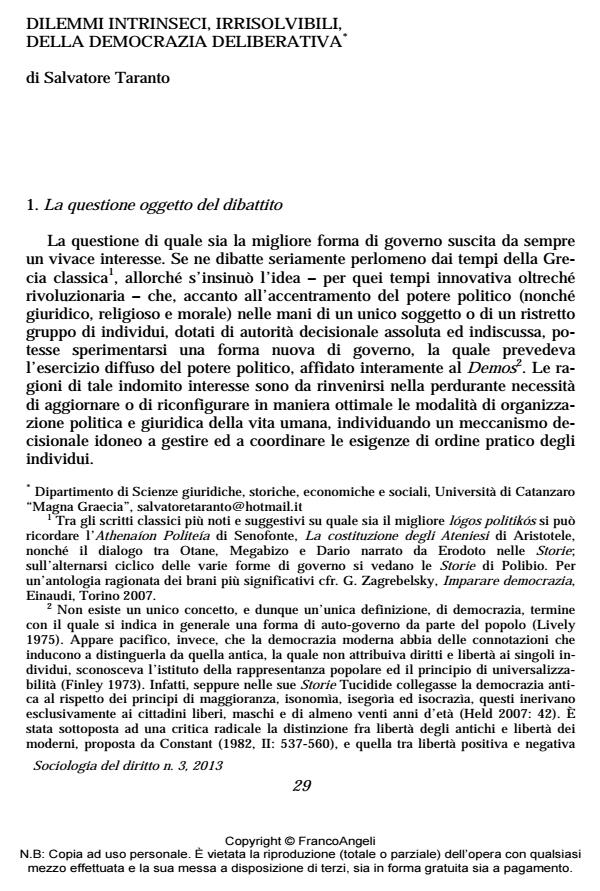Intrinsic, insoluble dilemmas of deliberative democracy
Journal title SOCIOLOGIA DEL DIRITTO
Author/s Salvatore Taranto
Publishing Year 2014 Issue 2013/3
Language Italian Pages 18 P. 29-46 File size 527 KB
DOI 10.3280/SD2013-003002
DOI is like a bar code for intellectual property: to have more infomation
click here
Below, you can see the article first page
If you want to buy this article in PDF format, you can do it, following the instructions to buy download credits

FrancoAngeli is member of Publishers International Linking Association, Inc (PILA), a not-for-profit association which run the CrossRef service enabling links to and from online scholarly content.
Today’s model of democracy, in keeping with the principle of the moral and legal autonomy of equally free individuals, has replaced the model of democracy of antiquity, as well as those of monarchy and of oligarchy. Modern society is familiar with numerous democratic formulae, which can be classified in three main methods of decision- making: voting, negotiating and deliberating. This latter version is based on the ideal that there is a collective reason that is capable of identifying the best public choice in a way that is both justified for and binding on everyone. To tell the truth, deliberative democracy encounters certain intrinsic, structural dilemmas that it cannot solve and that therefore give rise to serious doubts about this paradigm’s validity and functionality. Two aspects seem to be particularly complicated: the failure to identify the subject whose mind makes the collective decision and the need to make decisions that may not necessarily be rational.
Keywords: Salvatore Taranto, Democracy, Deliberation, Reason, Politics
Salvatore Taranto, Dilemmi intrinseci, irrisolvibili, della democrazia deliberativa in "SOCIOLOGIA DEL DIRITTO " 3/2013, pp 29-46, DOI: 10.3280/SD2013-003002